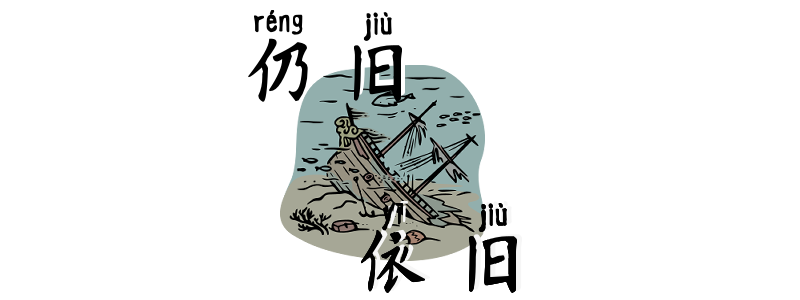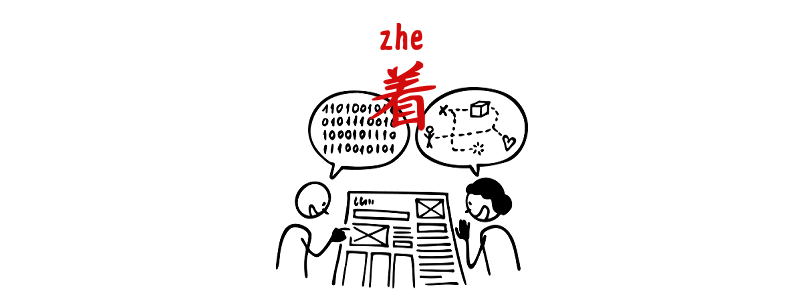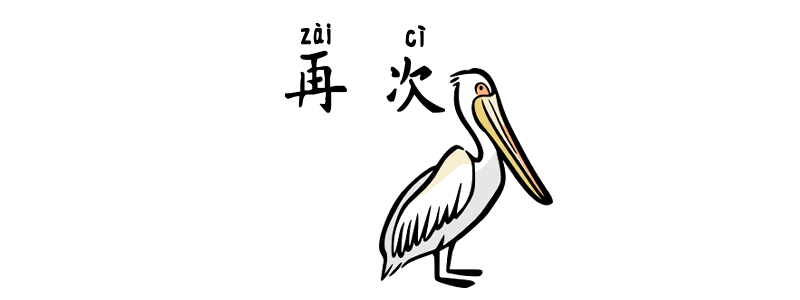Grammar Point:In Chinese, 將将 jiāng is used to indicate something that will happen in the future. It’s more formal and commonly appears in writing, official speeches, or announcements. It can also be combined with 會会 huì or 要 yào to express someone’s willingness. Structure S + 將将 jiāng / 將将要 jiāngyào / 將将會会 jiānghuì + V Generally, when 將将 jiāng is combined with 會会…
Author: tiffany
5 Ways to Say “Still” in Chinese
Introduction:還还 hái, 仍然 réngrán, 依然 yīrán, 仍舊旧 réngjiù and 依舊旧 yījiù share a similar meaning of “still,” but there are some differences in their usages and connotations. 還还 hái (HSK 2) Still, also, or yet. It implies that something continues, but in a more casual or neutral way. Commonly used in spoken language and can…
“Still” in Chinese 4 – réngjiù and yījiù
Grammar Point:In Chinese, both 仍舊旧 réngjiù and 依舊旧 yījiù mean “still” or “as before,” but they are used slightly differently in terms of nuance, formality, and context. Structure S + 仍舊旧 réngjiù + Adj or V Common in both spoken and written language, though it leans slightly more formal. It often emphasizes the continuation of something despite expectations or…
Subjective Evaluation with V 起來 qǐlái
Grammar Point:In the context of subjective evaluation, Verb + 起來 qǐlái is used to express how something feels, looks, tastes, or seems based on the speaker’s perception. This structure helps describe an impression or an initial judgment about something. Structure S + V 起來 + adj or descriptive phrase 這zhè蛋糕dàngāo看kàn起來qǐlái很hěn甜tián这zhè蛋糕dàngāo看kàn起来qǐlái很hěn甜tiánThis cake looks very sweet. 他tā聽tīng起來qǐlái很hěn聰明cōngmíng他tā听tīng起来qǐlái很hěn聪明cōngmingHe sounds very smart. 這zhè首shǒu歌gē聽tīng起來qǐlái很hěn輕快qīngkuài这zhè首shǒu歌gē听tīng起来qǐlái很hěn轻快qīngkuàiThis song sounds very relaxed. 這zhè衣服yìfú穿chuān起來qǐlái不bú太tài舒服shūfú这zhè衣服yìfú穿chuān起来qǐlái不bú太tài舒服shūfuThis…
Ongoing Actions with zhe
Grammar Point:The particle 著着 zhe is used to indicate ongoing actions or a continuous state in Mandarin Chinese. While it’s common in narratives or storytelling, it’s not something you’ll hear often in everyday conversations. In daily life, people usually use 在 zài to talk about actions in progress. When do we use it? How would you describe these 2…
Two actions in the same time – 一邊 yìbiān…一邊 yìbiān…
Grammar Point:The term 一邊一边 yìbiān…一邊一边 yìbiān… is used to express the idea of doing one thing while doing another thing simultaneously, with both actions being intentional. It emphasizes that the two actions are happening at the same time and are equally important. If you want to express that something happened while another thing was happening,…
Showing Distance With 離 lí
Grammar Point:離离 lí is a Chinese preposition that can be used to indicate distance, separation, or departure. It is often translated as “away from,” “off,” or “from” in English. Structures A 離/离 lí B + 近 jìn or 遠/远 yuǎn 日本Rìběn離lí韓國Hánguó非常fēicháng近jìn日本Rìběn离lí韩国Hánguó非常fēicháng近jìnJapan is very close to Korea. 加拿大Jiānádà離lí墨西哥Mòxīgē不bú太tài遠yuǎn加拿大Jiānádà离lí墨西哥Mòxīgē不bú太tài远yuǎnCanada is not too far from Mexico. 我wǒ公司gōngsī離lí車站chēzhàn很hěn近jìn我wǒ公司gōngsī离lí车站chēzhàn很hěn近jìnMy company is very close…
“Always” in Chinese 2 – 一向 yíxiàng
Grammar Point:一向 yíxiàng is a Chinese adverb that means “always” or “consistently.” It’s used to describe habits, actions, or characteristics that have remained the same over a long period, up to the present. It’s similar to saying “it’s always been this way” in English. Structure S + 一向 yíxiàng + Adj 這zhè家jiā店diàn的de價格jiàgé一向yíxiàng很hěn高gāo这zhè家jiā店diàn的de价格jiàgé一向yíxiàng很hěn高gāoThe prices at this shop…
“Again” in Chinese 2 – 再次 zàicì
Grammar Point:The word 再次 zàicì in Chinese means “again” or “once again”. It is used when you want to express repeating an action or event, similar to the English word “again,” but it carries a slightly more formal or deliberate tone than other ways of saying “again” in Chinese. Structure 再次 zàicì + verb 再次 zàicì is more formal than…
“Indeed” in Chinese 4 – 可 kě
Grammar Point:The emphatic adverb 可 kě is used in Chinese to add emphasis to a statement, often conveying a stronger attitude or emotion such as surprise, disagreement, or certainty. It is a casual way to stress a point or to express “indeed.” Structure 可 kě + V or Adj 可 kě is an informal emphatic adverb commonly used…









